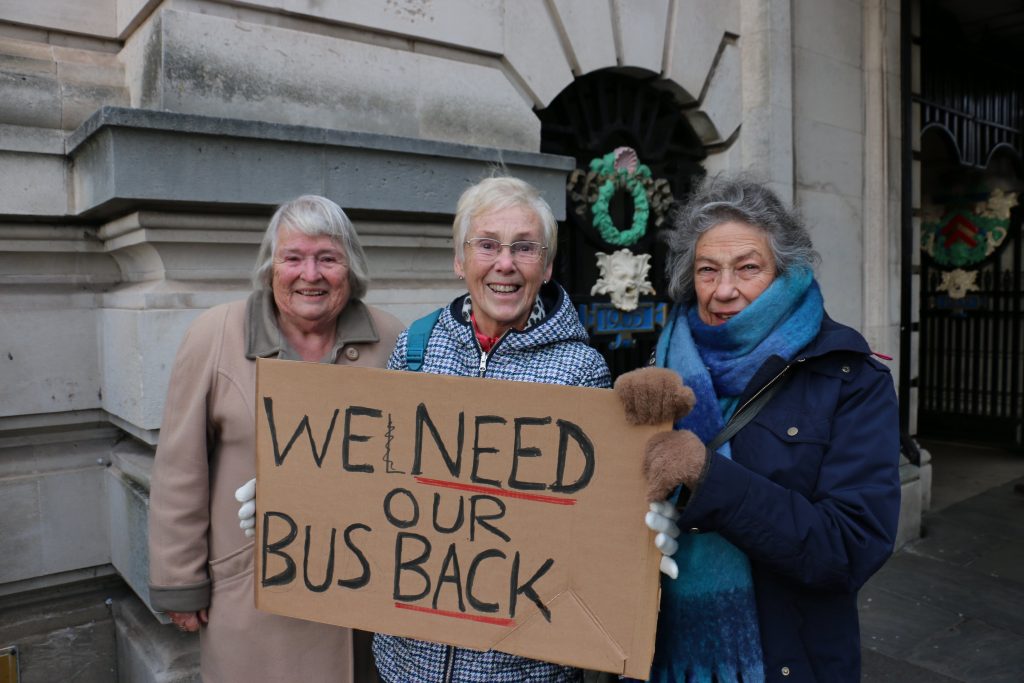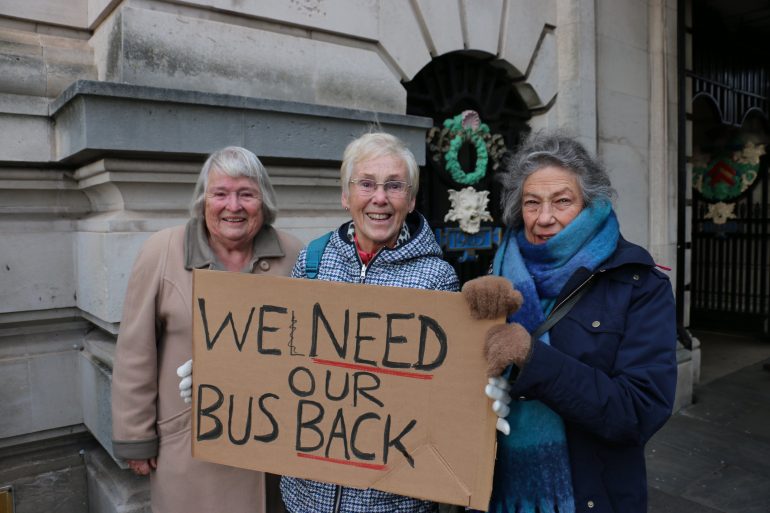As Cardiff transforms into a city built for cyclists and pedestrians, older Cyncoed residents feel left behind and isolated as bus services are axed
CYNCOED residents have revived a campaign against what they claim are “discriminatory” transport services across the city.
As Cardiff Council members arrived for their meeting on Thursday, January 26, Cyncoed residents were ready to greet them as they entered the chamber – calling for the reinstatement of adequate and reliable bus services.
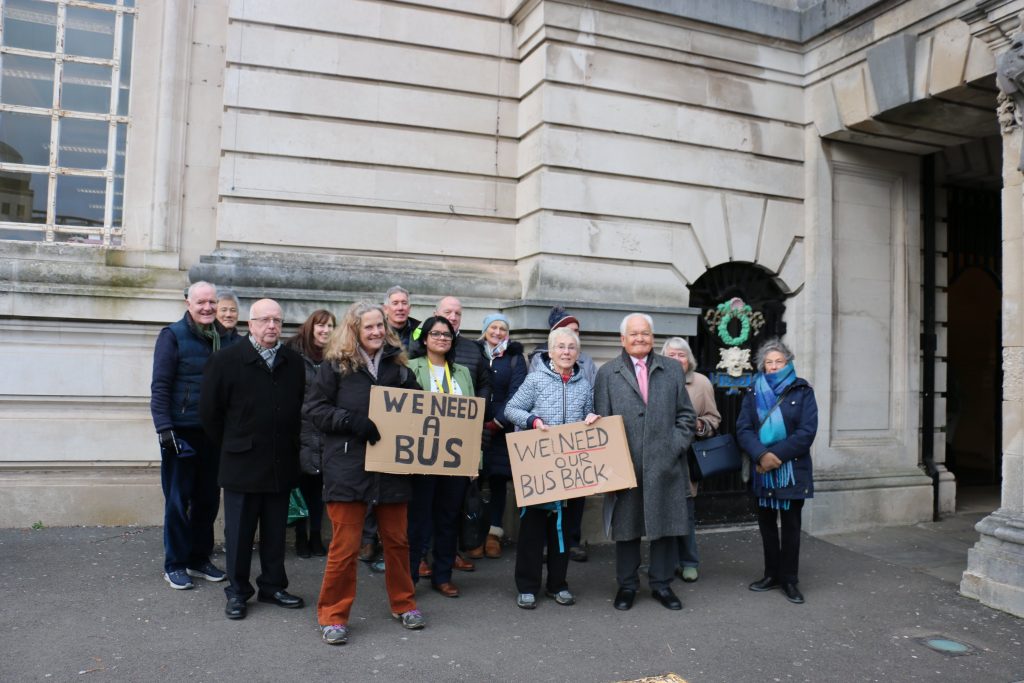
Gillian, 77, moved to Lake Road West nearly 40 years ago: “The bus was there when we moved in, you just crossed the road and there was a stop. It’s one of the reasons we bought the house.
“(Now) The whole area is without buses. Most of Cardiff is like that.
“If you want to go to the theatre, for example, you have to think twice about how you get there.”
For some residents, it’s not just about social isolation. It’s about being able to go about their daily life.
Maureen Davies, 78, said: “We don’t have any local shops. We have to walk 20 minutes before we get to a shop.
“Everything is so difficult. We are on the elderly side, but we still want to get out.”
Mercedes, 82, doesn’t have a car and struggles to do her food shopping: “There are shops on Albany Road, but you can’t always find what you need.
“To go to the shops, I have to walk to Ninian Road and then take a bus towards Llanrumney, and get off at Colchester Avenue.
“I go once a month. There are two buses in the morning and two in the afternoon. If you don’t get the 12 o’clock one home, if you miss it for whatever reason, then you have to get a taxi home.”
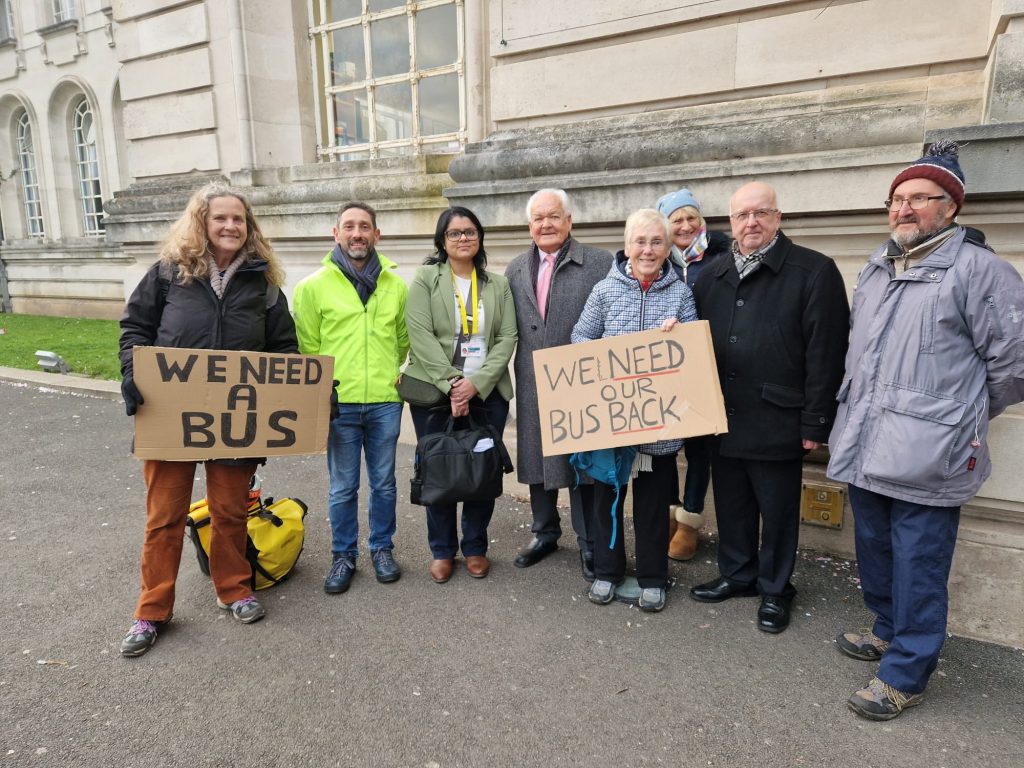
Residents started campaigning in 2019, after the 54 bus was amalgamated with the 28 and re-routed from Lake Road West to the other side of Roath Park.
Now residents must walk along Roath Park promenade – which does not have any lighting or surveillance – to get to their nearest bus stop. Not only can this be a long walk for those with limited mobility, it can also be frightening, particularly for elderly residents or parents letting their children catch the bus at night.
Cardiff Bus said the 54 bus was axed to “consolidate the services and address the financial sustainability of them”.
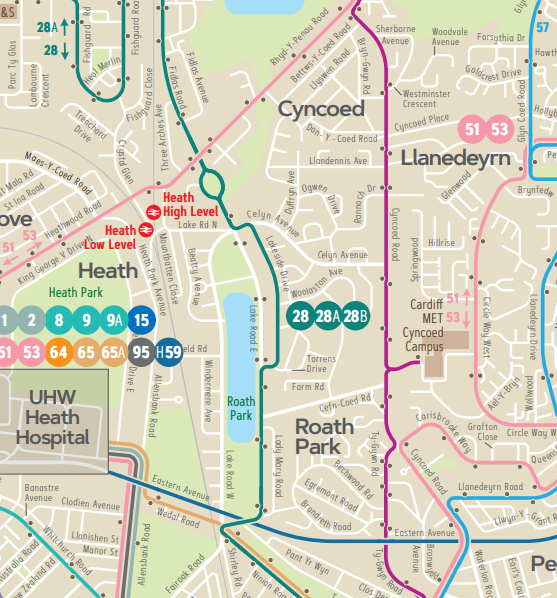
Cyncoed Councillor Bablin Molik said: “It is discriminatory against older people. They see a flat map, they don’t see the hills people have to climb. It is fine for me but for people with limited mobility, it’s not.”
During a meeting in January 2020, over 100 residents met in a local church to speak to Cardiff Bus Chairman, Coun Chris Lay.
Howard Kilvington, who led the 2020 meeting, criticised the decision to amalgamate the services: “The trouble is, it’s reduced the service by half. They didn’t double the number of buses coming through Lake Road West.”
Ms Davies said: “We thought we had a breakthrough. We had maps on the screen and about 150 people. The next month came, and so did the pandemic.”
Any traction the campaign gained “disappeared”.
When asked whether they would consider reinstating the service, a spokesperson for Cardiff Bus said: “At this time, it is unlikely, from our perspective.
“However, Cardiff Council does have a responsibility to look at socially necessary bus service and they have the ability to tender for such a service, should they conclude they need to do so.”
But when Mr Kilvington put the issue to Cardiff Council during the meeting, they told him they “have no say” in how the buses operate.
Cardiff Council is currently improving and investing in infrastructure for cyclists and pedestrians, with the hope of reducing car traffic in the city centre.
Gillian said: “The council want us to give up our cars. But we can’t cycle. As we get older our legs aren’t as strong as they used to be. We can’t carry our stuff.”
Ms Davies added: “I wouldn’t dream of bringing my car into town. If I come in, I have to get one of the 50 buses. It’s too much like hard work.”
